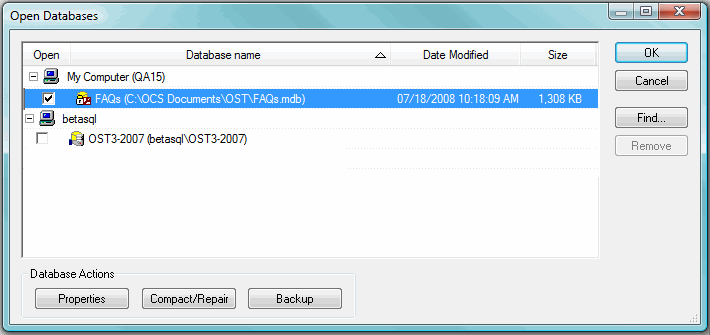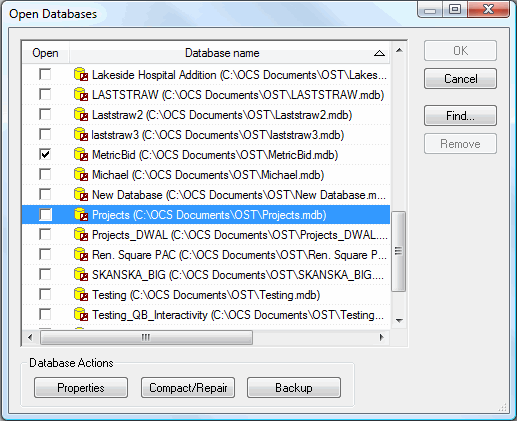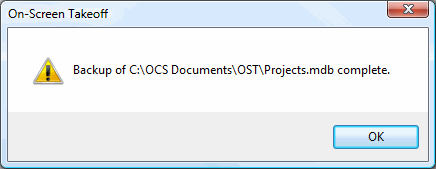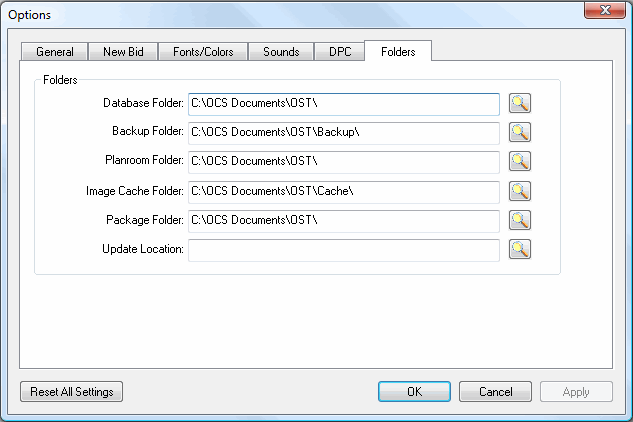Backing up a Microsoft Access database ensure you have a fall-back if something happens to your current/working database. Basically, the program simply makes a copy of your current database and stores it in a designated folder.
 |
Additional Information: This is applicable to Microsoft Access databases ONLY. Basically, the back-up utility simply makes a COPY of the selected database and stores it in the backups folder. To back-up a Microsoft SQL database, contact the SQL Database Administrator. |
Setting up automatic database backups
Click File>Open - the Open Databases dialog box displays

Select the database for which you want to adjust back-up setting and click Properties - the Database Properties dialog box displays.

In the Auto back-up field, select the frequency at which you want to create backups (default is once a week) and the number of back-up copies to keep (default is 2)
 |
Additional Information:
The default settings will create 2 backups of your database named <database>1.mdb and <database>2.mdb. backups are overwritten in order (for example, if you make 2 backups, the 3rd time the routine runs, the first back-up is overwritten). |
backups are stored in your back-up folder defined in Tools>Options>Folders - see Options Dialog - Folders Tab for more information on setting folder options.
The back-up routine runs when the application is closed, any OPEN databases are backed up based on their Auto back-up settings.
Manually Backing up a Database
Click File>Open - the Open Database dialog box displays

Highlight the database to back-up and click the back-up button
A confirmation displays when the back-up is complete

Safeguarding your backups
By default, all backups are stored in a subfolder of OCS Documents\OST named Backups
The folder to which backups are made may be changed by clicking Tools>Options and then Folders. On Center Software recommends storing all backups on a drive OTHER than the local hard drive if possible to prevent accidentally use of a back-up for performing work (a network drive or second hard drive or even an USB thumb drive will work).

Click the lookup button ![]() (magnifying glass) to browse to an alternate location where you want to store your backups.
(magnifying glass) to browse to an alternate location where you want to store your backups.
Database Maintenance - Compact and Repair





